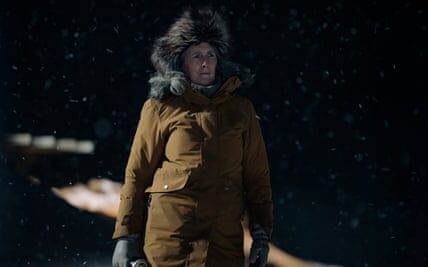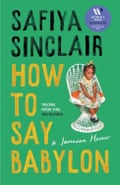
Bernardine Evaristo
How to Say Babylon by Safiya Sinclair is a very literary and lushly written memoir about growing up with a Rastafarian father in Jamaica who imposed his tyrannical will on his children, especially his daughters, to such an extent that it was suffocating and psychologically damaging. Eventually Sinclair escapes his grip and finds freedom and self-determination in the US, where she becomes a writer, initially a poet. Shockingly honest and brave, but also beautifully immersive and ultimately uplifting, this is a stunning book.
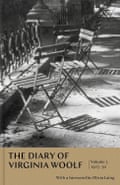
Zadie Smith
I just finished one of the great reading experiences of my life: Virginia Woolf’s diaries. All the seasons of life are in there, but she’s especially acute on the joys of summer. My own summer project is reading Huckleberry Finn in preparation for Percival Everett’s James. Halle Butler’s Banal Nightmare (out in August, Orion) will end summer with a bang. It’s about turning 37 and realising you hate everybody you know. It’s also about trying to become an adult while living in – and through – this unregulated, neoliberal, late-capitalist version of the internet with which we are presently saddled. So funny, so smart, utterly vicious – just brilliant.
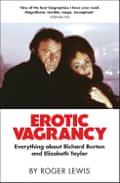
Colm Tóibín
In the summer in Ireland you need two kinds of book: one for sunny weather and the other kind for most other days. For the first, I recommend Erotic Vagrancy by Roger Lewis, which is a witty and wise account of the lives of Richard Burton and Elizabeth Taylor. Lewis is a brilliant writer; his acute eye for rich and fascinating detail is on open and shameless display here. The other book is a dark masterpiece – Question 7 by Richard Flanagan – a book about Tasmania, about memory, about the legacy of the second world war. It is a deeply personal book that I found mesmerising.
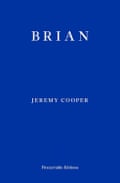
Olivia Laing
I came late to Jeremy Cooper’s Brian, but it’s easily the best novel I’ve read this decade. Brian is a socially avoidant man who finds a community among the film buffs at the BFI. That this unpromising premise should be the source of such pleasure is really down to Cooper’s subtle, patient evocation of Brian’s world. Limited on the surface, it possesses great richness thanks to his submersion in the parallel reality of cinema. A word, too, for Practice by Rosalind Brown, another novel in which a limited horizon – a day in the life of an Oxford student – is made enormous by tracking the flight of the mind.
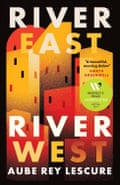
Rebecca F Kuang
Recently I’ve enjoyed two brilliant literary debuts. The Irish writer Ferdia Lennon’s Glorious Exploits involves Syracusans forcing Athenian prisoners to stage Euripides during the Peloponnesian war. I love contemporary Irish fiction and Greek tragedy, so how wonderful to find a novel where they are brilliantly paired. It is as hilarious, moving, and profound as promised. I also loved Aube Rey Lescure’s River East, River West, which portrays western expats in Shanghai with both clear-eyed critique and compassion. It’s just been deservedly shortlisted for the Women’s prize.
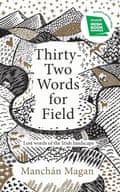
Michael Rosen
Two books about Ireland, one fiction, one nonfiction. Sarah Crossan’s YA novel, Where the Heart Should Be, is set during the Irish famine and you can taste the bitterness as both food and relationships are blighted. It’s written in free verse poems that catch your heart. Manchán Magan’s Thirty-Two Words for Field dives back into the origins of the Irish language through the prism of Magan’s own life. One moment we are in Dublin, and the next on the west coast with figures from the great Irish legends appearing out of the sea. The two books illuminated each other for me.
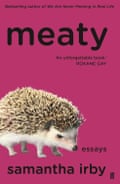
Katherine Rundell
I adore the work of the American essayist Samantha Irby, surely one of the wittiest writers around. She has a new book, Quietly Hostile, but if you were new to her work I’d begin with Meaty, her first: it’s humane, brilliantly funny, and her writing about caring for her mother as a child is profoundly moving. I also loved Naomi Klein’s Doppelganger, a book structured around the fact that she’s chronically mistaken for Naomi Wolf – but it’s much wider in scope than that: an investigation of politics, the internet, misinformation. She’s a writer I admire hugely, for her rigorous intelligence, her spike-sharp humour, and her clarity of moral purpose.
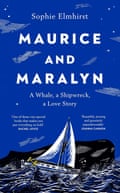
Nina Stibbe
Maurice and Maralyn by Sophie Elmhirst is the true story of a couple who escape miserable 1970s Britain by building a boat and setting sail, only to be shipwrecked by a whale and cast adrift for 118 days on the Pacific Ocean. Genuinely unputdownable. More sea and another whale in Whale Fall by Elizabeth O’Connor, a beautifully written debut novel following 18-year-old Manod and her quest to break free from her life on an isolated island community off the coast of Wales in the 1930s. Another island novel perfect for summer is Francesca Segal’s Welcome to Glorious Tuga. Newly qualified vet Charlotte Walker sets off to take up a fellowship on a tiny South Atlantic island studying endangered tortoises. Immersive, vibrant and funny.
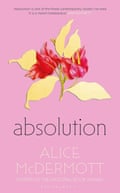
Meg Mason
Two novels I have been utterly captivated by this year and would pack into anyone’s suitcase, with or without permission: Absolution by Alice McDermott, about a young American woman who has just married to her diplomat husband when he is posted to wartime Saigon – not as heavy as it sounds, thanks to the most charming narrator. And This Is Happiness by Niall Williams, which is set in Ireland in the 1950s. “A tiny village is about to get electricity” would be a summary of the plot. “All of human life, relationships, grief death, family, romantic love” is what it contains. And there is no need to be bereft when it’s over, as I was, because there is a sequel coming later this year.
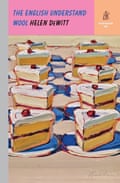
David Nicholls
A slim hardback of fewer than 70 pages is an absurd thing to take to the beach, but The English Understand Wool by Helen DeWitt is quite brilliant: a witty, twisty, pin-sharp novella with a wonderful voice. It’s very funny, entirely unpredictable, I loved it.
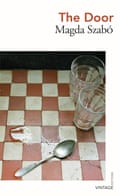
Ali Smith
Nearly 20 years ago I read and loved the great Hungarian writer Magda Szabó’s The Door (1987, translated into English by Len Rix in 2005); it’s taken me till now to catch up on two more recently translated novels that precede it, Katalin Street (1969, translated by Rix in 2017) and Abigail (1970, Rix 2020). I’m so glad I have; what a pleasure it is to be back with this writer who takes the loss, the mess, the social and historical divisions and renders everything humane, luminous, better understood. The books (and their translations) are a kind of seamless joy. I’m also reading and loving Ben Masters’ marvellous new book, The Flitting, about family, grief, bereavement, the natural and cultural worlds and – butterflies. A book with wings.
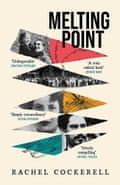
Robert Macfarlane
Rachel Cockerell’s Melting Point is a remarkable, gripping account of the Galveston Movement, the near-forgotten moment when “10,000 Jewish people fled to Texas in the lead-up to WWI”. This is a work of history that reads like a novel, in large part due to Cockerell’s bold decision to tell it without a third-person narrator, and instead to allow only historical voices to speak, organised more or less chronologically, and identified by subtle shoulder-notes/names. Here, the archive bristles into vivid, bustling life: the story, as Cockerell puts it in her preface, “has a memory-like quality – elastic, shifting, filled with small details”. Brilliant.
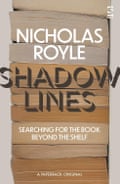
Jonathan Coe
Kate Beaton’s Ducks: Two Years in the Oil Sands is not a book about ducks. It’s a superb graphic novel – or memoir, rather – recounting the Canadian artist’s time spent working in a remote camp in Alberta owned by an oil company. Words and images combine to tell an empathetic, sometimes harrowing story of a young woman working alongside thousands of men in an isolated community. Nicholas Royle’s Shadow Lines is a bibliophile’s dream: a series of linked essays about his obsession for secondhand books. The attraction for Royle is not just the books themselves, but the detritus he finds inside them – old postcards, tickets, receipts, you name it. He observes his own mania with wit and wry self-deprecation.
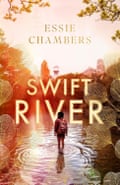
Curtis Sittenfeld
I absolutely loved Swift River by Essie Chambers, a brilliant, funny, warm-hearted first novel (that the author spent more than a decade writing, and it shows in every perfect sentence). It’s about a teenage girl in a small town and family and race and letters, and it’s truly spectacular. I also loved the reported memoir Trippy: The Peril and Promise of Medicinal Psychedelics by the New York Times journalist Ernesto Londoño. A testament to the complexity of Londoño’s perspective is that some passages made me really want to try ayahuasca and some definitely didn’t. A thorough and fair-minded reporter, Londoño also writes movingly about his own extended family, experiences with depression, and delightfully unexpected courtship.
after newsletter promotion
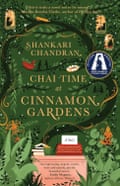
Shehan Karunatilaka
It’s not that I only read books by Sri Lankans. That would be parochial and silly. My summer book stack, however, would beg to differ. What to do? Sri Lankans from all corners of the planet seem to be writing wonderful stories and scooping up prizes. From the US comes the moving and rapturous Brotherless Night by VV Ganeshananthan, equal parts heartbreak and rage, unravelling the tragedy of Sri Lanka’s civil war with a family saga of violence, loss, impossible choices and astounding courage. From Australia comes Chai Time at Cinnamon Gardens by Shankari Chandran. What begins as a cosy tale of septuagenarians in an idyllic Sydney nursing home quickly reveals its teeth to ask uncomfortable questions about history, memory, race, community and who gets to be called Australian.
Brotherless Night just won the Carol Shields prize and the Women’s prize, and Chai Time picked up the Miles Franklin award last year. Also shortlisted for both the Hugo and Nebula this year is my current read, The Saint of Bright Doors by the Colombo-based Vajra Chandrasekera. A picaresque fantasy novel about an assassin dispatched to kill his own father, it’s filled with invention and ideas. It’s inspiring to see Sri Lankan writers punching above their weight and collecting trophies. Let’s hope the cricket team can start doing the same.
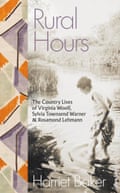
Sarah Waters
Two books have cheered me up for summer. Harriet Baker’s Rural Hours is a fascinating look at the impact of country home-making on the lives and work of Virginia Woolf, Sylvia Townsend Warner and Rosamond Lehmann. It’s beautifully written, gorgeously produced, absorbing and full of insight. Joan Silber’s Ideas of Heaven, first published in the US in 2004 but now available as a UK paperback, is, like many of her books, a collection of loosely connected short stories with a wide range of characters and settings. She’s a quiet genius of a writer, brilliant at capturing the radiant untidiness of living and loving, longing and loss.
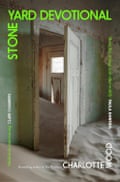
Anne Enright
Wonderful to see Helen Garner’s work reissued here – a restless, unapologetic, brilliant writer of both fiction and nonfiction, she rips through the domestic like no one else. I really liked Charlotte Wood’s Stone Yard Devotional; a bare, very readable book about an Australian woman who goes on retreat, it is lit by a lovely melancholy for the world. If you want a holiday read, grab a copy of Kevin Barry’s The Heart in Winter. Set in 1891 among the Irish miners of Butte, Montana, this is a high, rollicking romance in which every brilliant sentence makes the heart sing. It’s a kind of holiday in itself.
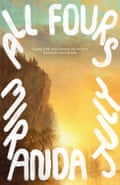
Sarah Perry
I fell a bit in love with Miranda July after watching Fires of Love, the volcano documentary she narrated, so I thought I’d better read her new novel All Fours. I do this with some trepidation, since it’s about a woman of my own age, and I’ve seen various women of my own age say that it has changed them for ever, and so on; and I don’t think I want to be changed, and certainly not for ever, but I’m willing to risk it.
Some of my happiest childhood memories are of sneakily reading Stephen King and James Herbert novels in a hot tent while I should have been enjoying the summer weather. I’d like to repeat this by staying indoors reading some horror while everyone else is getting a nice healthy tan: I’m going for the collection Flowers from the Void by Gianni Washington, which sounds pleasingly gothic and grotesque.
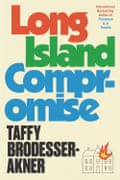
Mick Herron
This summer I’ll be reading Taffy Brodesser-Akner’s Long Island Compromise (Wildfire, out in July), her follow-up to the effervescent Fleishman Is in Trouble. This one’s about the 40-year aftermath of the kidnapping of a businessman in 1980 and is, we’re promised, “darkly exhilarating”. And I’ve already enjoyed one great summer read: Rachel Kushner’s Creation Lake (out in early September from Jonathan Cape) – an immersive novel about an agent provocateur embedded within a group of environmental activists in south-western France, and slowly becoming mesmerised by the group elder’s theories about Neanderthals. It’s seductive, entrancing, and quite off the wall.
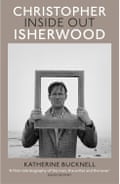
Armistead Maupin
I’ve spent my summer devouring Christopher Isherwood’s Inside Out. Devouring is not the right word, really, since I took my time with these 700-plus pages, savouring the journey all the way. Its author, Katherine Bucknell is not only the editor of Isherwood’s three fat volumes of diaries but a novelist of note who is well suited to capturing all the beauty and turmoil of the great man’s life.
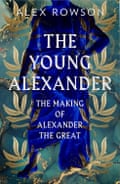
Alice Roberts
Alex Rowson’s The Young Alexander is an epic slice of history that seeks to explain how Alexander the Great became the man who created a huge – yet brief – empire spanning the whole of the eastern Mediterranean. Alex writes so beautifully, taking you on a journey to ancient Macedonia: to the tomb of Philip II of Macedon; with its glittering gold casket and oak-leaf wreath; to the school where Alexander learned from his tutor, Aristotle; to the oracle at Delphi – and beyond. New archaeological discoveries are seamlessly woven together with historical sources. It’s a stunning book – and a perfect read for your travels.
David Gibbins’s A History of the World in Twelve Shipwrecks is another masterful archaeological/historical treat. I found this book unputdownable. Tales of maritime archaeological discoveries – with shipwrecks emerging from the gloom of the depths – flow together with all the clues emerging from the lost cargoes. Ships connected ancient and historical civilisations across vast distances, and Gibbins explains eloquently how currents of people and ideas underpin history. Each chapter is a brilliant standalone glimpse into a particular wreck and era – and strung together, they provide us with a fresh (while salty) perspective on history.

Oliver Burkeman
Sophie Elmhirst’s Maurice and Maralyn, about Maurice and Maralyn Bailey, the British couple who survived 118 days adrift on the Pacific in 1973 after a whale struck their yacht, is both a nail-biting adventure story and a somehow even more compelling journey into the hidden dramas of marriage. And Sara Kuburic’s It’s on Me is a rarity among self-help books: an invigorating guide to an authentic life as seen through the lens of existentialist philosophy, free of follow-your-passion cliches. It’s as bracing as walking into a stiff breeze, and therefore an excellent British beach read.
William Dalrymple
Eugene Rogan is arguably our greatest living historian of the Middle East. His books on the Nakba, the Ottomans and the Arabs are essential reading for anyone trying to understand one of the most complex regions of the globe with its many simmering conflicts.
His new book, The Damascus Events: The 1860 Massacre and the Destruction of the Old Ottoman World, examines in detail one of the most terrible outbreaks of communal violence in Ottoman history. It is superbly well researched and beautifully written, with all the archival discoveries and subtle, nuanced interpretation that we have come to expect from Rogan. But it also a deeply humane book that provides a much-needed example of how societies with deep divisions can pull back from the brink. It shows how they can and do recover from the trauma of genocidal violence, so finding a way to stagger back towards some form of coexistence. It is difficult to think of a more timely or important history book published this year.
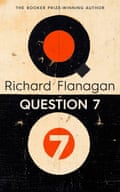
Peter Frankopan
I’ve loved Question 7 by Richard Flanagan – he is a writer of such extraordinary imagination and elegance. His latest book is breathtakingly good; it’s astonishing. Slightly jumping the gun is Elif Shafak’s There Are Rivers in the Sky, which comes out later this summer. Elif is such an original thinker and writer, and this is such a beautiful and original book. Both these authors are glorious. Reading books like these is what inspires me to try to be a better writer myself.
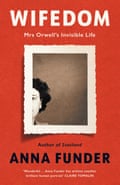
Elif Shafak
I recently finished reading Wifedom: Mrs Orwell’s Invisible Life by Anna Funder. This is a tremendous book written with such brilliance, honesty, humour and wisdom. I loved the hybrid writing throughout and the way Funder weaves the personal and the political and the literary to bring Eileen to life, filling in the gaps that history, which is often his-story, has systematically forgotten. I would also wholeheartedly recommend Claire Messud’s novel This Strange Eventful History, which is the story of a family migrating through multiple borders, leaving a part of themselves behind. It is beautiful. If I may add one more title, I just loved Anne Michaels’ Held. The beauty of her prose is outstanding.
Monique Roffey
In Anima, A Wild Pastoral, Kapka Kassabova captures a legendary community – Europe’s last nomadic shepherds, a people who, against all the odds, still practice transhumance, in that they are permanently on the move with their flock of animals and the magnificent Karakachan guard dogs. Kassabova speaks their language, and, having embedded herself for months in their daily life and myth, earns the right to tell this story. A book that mesmerises with its sense of adventure and epic sweep, this is creative nonfiction at its best. I also enjoyed Love Me! One Woman’s Search for a Different Happy Ever After by Marianne Power. Whatever happened to Bridget Jones? In this post #MeToo update she conquers shame, becomes a tantric woman and gets good at sex. A gold-star beach read.
-
To explore all the books in the Guardian’s summer reading list visit guardianbookshop.com. Delivery charges may apply.
Source: theguardian.com

